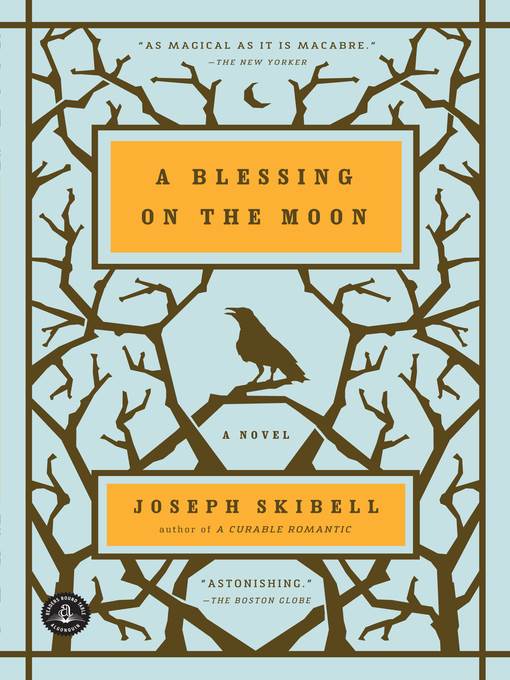
A Blessing on the Moon
کتاب های مرتبط
- اطلاعات
- نقد و بررسی
- دیدگاه کاربران
نقد و بررسی

Starred review from December 30, 1996
A major talent is revealed in this debut novel, a work that combines the hallucinatory quality of D.M Thomas's The White Hotel, the enigma of a Talmudic fable, the charm of a Yiddish folk tale and the lyric surrealism of a Chagall painting. When elderly Chaim Skibelski climbs out of a mass grave in which the bodies of all the Jewish inhabitants of a Polish village have been thrown by German soldiers, at first he does not understand that he is dead. Lightly, with a sense of wonderment rather than anger, he narrates his return to his own home, where a Polish family are already ensconced, and his discovery that the rebbe has been reincarnated as a crow. The only person who can see Chaim is the terminally ill daughter of the Polish family; Chaim cares for her tenderly, and when she dies, Jesus and Mary bring her to heaven. Eventually, the rebbe opens the mass grave and the dead Jews--their mutilated, decomposing bodies filled with maggots and corroded by lime (the stark realism of their stench coexists with the surreal fantasy of the scene)--follow Chaim and the rebbe through the forest. They come to an opulent hotel where they are welcomed, given beautiful clothes and fine meals. Chaim is reunited with his (dead) wife, children and grandchildren, a bittersweet moment because he realizes that only two members of his family, his sons in America, have escaped the Holocaust. Then, in a stunning scene bristling with irony, the Final Solution is again reenacted. During all this time, the moon has been absent from the sky; the Poles maintain that "the Yids took it," and, indeed, two Hasids have inadvertently pulled the shining orb from the heavens. In the final act of healing with which this novel ends, the traditional Hebrew blessing on the moon brings a kind of closure to the horror. Skibell's masterful skill in maintaining the thin line between fantasy and reality and between sorrow and bitterness, his deft interjection of gallows humor and poetic passages of gossamer delicacy, allows him to spin a story that beguiles even as it breaks your heart. BOMC selection; rights sold in Germany and the U.K.; author tour.

Starred review from September 1, 1997
Chaim Skibelski is dead. Or is he? In the opening pages, he is shot and pushed into a pit along with his fellow Jews in a village in Poland. Chaim, accompanied by his rabbi in the form of a crow, escapes to wander among the living, unable to join the World To Come. His journey is divided into three parts. In the first, he revisits his old home, finding that a Polish family has taken over his business and personal effects. Here he meets Ola, a dying girl who can see him though her family can't. In the second part, he meets up with his old village and his family in a luxurious hotel that appears too good to be true. Finally, Chaim encounters Zalman and Kalman to complete a task involving the moon, the rabbi, and Skibelski himself. It is with this last step that the protagonist might finally find the peace that death should bring. Utterly different and surreal, this first novel takes an original approach to the Holocaust and leaves a lasting impression. For all literary collections.--Robin Nesbitt, Columbus Metropolitan Lib., Ohio

September 1, 1997
Magical realism in the gas chambers? How else to express the unimaginable cosmic horror that exploded the daily life of millions? Chaim Skibelski climbs out of the pit where he and his Mintz community were shot to death and returns as a ghost to his home, which has been taken over by a Polish family. Then he lives and dies through every kind of Holocaust experience. He leads his squabbling, kvetching community of corpses on a march of blood through the snow until they come to a river and are seduced into crossing it and entering a luxurious hotel, where they are burned in the ovens. Chaim escapes. The narrative gets heavy-handed when the metaphors are worked out with minutiae of Jewish mysticism. What does work is the way the great moral questions rise right out of the wild drama of ordinary people, as when the severed head of the German who shot Chaim asks for kindness, or when Chaim's friend asks, Why did you leave me behind when you climbed out of the pit? ((Reviewed Sept. 1, 1997))(Reprinted with permission of Booklist, copyright 1997, American Library Association.)

























دیدگاه کاربران